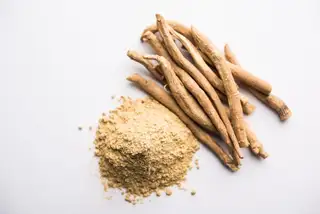
What to Eat & What to Avoid If You Have a Stomach Ulcer
Stomach ulcers, also known as peptic ulcers, are sores that develop on the lining of the stomach or the upper part of the small intestine. They can be caused by an infection with Helicobacter pylori (H. pylori) bacteria or long-term use of certain medications, particularly nonsteroidal anti-inflammatory drugs (NSAIDs) .
1. Foods to Eat
An ulcer diet should include foods that are gentle on the stomach lining and promote healing. These include:
- Fruits and Vegetables: Rich in fiber and antioxidants, they help repair damaged tissue. Berries, apples, grapes, and pomegranates are good choices .
- Legumes: They are a good source of protein and fiber.
- Lean Meats: Skinless poultry and lean beef provide essential nutrients for healing.
- Fish and Seafood: Especially fatty fish like salmon, mackerel, and sardines, which are rich in omega-3 fats that can reduce inflammation.
- Eggs: A great source of protein.
- Whole Soy Foods: Tofu and tempeh are beneficial.
- Fermented Dairy Foods: Kefir or yogurt, which contain probiotics that can help with digestion.
- Healthy Fats: Such as olive oil, avocados, and nuts.
- Whole and Cracked Grains: They provide necessary fiber and nutrients .
2. Foods to Avoid
Certain foods can irritate the stomach lining and worsen ulcer symptoms:
- Alcohol: It is a stomach irritant and delays healing .
- Caffeine: It can increase stomach acid production .
- Milk and Cream: They can increase stomach acid .
- Fatty Meats: High in saturated fats, which can exacerbate ulcers.
- Fried or High-Fat Foods: They are harder to digest and can increase stomach acid .
- Heavily Spiced Foods: They can cause irritation .
- Salty Foods: May promote the growth of H. pylori .
3. Lifestyle Changes
In addition to dietary adjustments, certain lifestyle changes can help manage ulcer symptoms:
- Stress Management: Chronic stress can aggravate ulcers, so practicing stress-reduction techniques like yoga, meditation, or deep breathing is beneficial .
- Avoid Smoking: Smoking can increase the risk of developing ulcers and slow the healing process .
- Limit Alcohol Consumption: Alcohol can irritate the stomach lining and should be consumed in moderation, if at all .
4. Medical Treatment
While dietary changes can help manage ulcer symptoms, medical treatment is often necessary. This may include medications to reduce stomach acid, antibiotics to treat H. pylori infection, and sometimes surgery for complications .
5. Conclusion
A stomach ulcer requires a multifaceted approach to healing, combining medical treatment with dietary and lifestyle adjustments. By focusing on a diet rich in healing foods and avoiding those that can cause irritation, individuals with stomach ulcers can support their body's natural healing process. It's essential to consult with healthcare providers to develop a comprehensive treatment plan tailored to individual needs .





